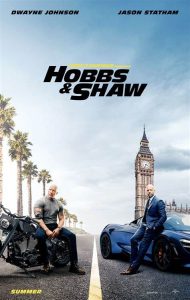By James Madden. Viewed on 06/01/2010
There seems to be one image that the new Jane Campion film seems to be running with. And it is this image that has continually stayed in my mind since seeing the poster art, and will probably continue to persist in my mind when I think of the film. I have included this picture below, and I won’t lie when I say that it was this dark blue/possibly purple field that partly attracted me into seeing this film.
The other attraction was the interesting filmmaker Jane Campion. Over the last few years, I have attempted to take in the occasional Campion film. I must say that I do find Campion’s films to be quite subtle and can take some time to actually resonate in my own mind. My first viewing of a Campion film In the Cut (2003) was my must see film after the car crash disaster of an interview between British interviewer Michael Parkinson and film star Meg Ryan. That film itself, to this time has been my most enjoyable Campion film, ranking above the Oscar winning epic The Piano (1993), Campion’s feature film debut Sweetie (1989) and the Henry James adaptation Portrait of a Lady (1996).
Actually, to be honest my favourite Campion piece was the accompanying documentary to Portrait of a Lady which showed a very fragile Nicole Kidman, Barbara Hershey as the actor that Campion seemed to forget about, John Malkovich almost playing the John Cusack version of himself that is portrayed in Being John Malkovich (1999) and a completely crazy Shelley Winters (I’m talking Elizabeth Taylor/Liza Minnelli crazy!) This cannot be more highly recommended, and if you’ve seen and enjoyed the video diaries that accompany Lars von Trier’s Dogville (2003), then you DEFINITELY MUST see this!!!
But alas, we come to Bright Star (2009) which centers around two lovers Fanny Brawne (Abbie Cornish), the muse to poet John Keats (Ben Whishaw) who’s love affair lasted for three years, starting in 1818. Both actors bring capable and honed performances that stay true to the core of Keats poems, the times, and the theme of love itself. Cornish displays a love so intense that her agonising feelings of separation between herself and Keats is beyond palpable. And on a superficial level, Whishaw manages to successfully don a Noel Fielding hairdo (Mighty Boosh style) that appealed to my eyes throughout the film.

Campion has a knack of bringing us these period pieces of Bright Star, Portrait of a Lady and The Piano that are reminiscent of the Merchant Ivory films of the early 1990s with Emma Thompson. But The Piano and Portrait of a Lady seem to have an inherent theme of sexuality and treachery (respectively) that is a little more intense than these usual Merchant Ivory films. The less thematically intense Bright Star (which is rated PG in Australia) seems to fall pray of the same enduring love theme that we have seem repeated again and again over the years in the likes of the Emma Thompson/Jane Austen/Merchant Ivory films. So why does Bright Star even need to be put forth to a cinema going audience, one might wonder? It’s all about the poet and his muse.
Poetry could be called fairly unrepresented on the silver screen in terms of films that are written about famous poets. We have an endless amount of films that are based on famous British authors, and an even more endless array of adaptations of these famous British authors stories. But what we seem to miss is the works of the famous English poets such as Keats, Blake, Wordsworth and Byron. These Romantic poets are mentioned in Bright Star, and it is this love of poetry that Campion shows as something beautiful in the words of Keats.
“Bright star, would I were steadfast as thous” was the poem that the title comes from, which is used so effectively to drive the films romantic and undying love themes. Campion has faithfully put Keats words to screen, with a story that manages to stay in my mind and I’m sure when I think of Keats, I shall also think of Brawne. Along with the success of Campions script and direction comes excellent cinematography from Greig Fraser, which is shown in the image included in this review. Mark Bradshaw also brings us an interested and an almost isolated soundtrack that is most highlighted by a sole violin and an acapella choir of men that brings the classical English sound to be a modern film.




